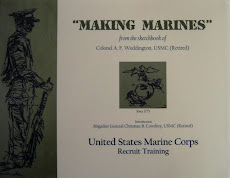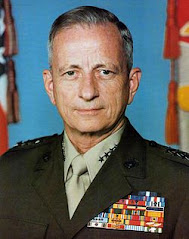ELECTING OBAMA—PER TYLER, WHERE IS OUR DEMOCRACY?
By Andy Weddington
Friday, 21 November 2008
Two weeks ago a reader sent me the below italicized passage and posed the question: “Where do you think we are in this continuum with the election of Obama?”
About the time our original thirteen states adopted their new constitution in 1787, Alexander Tyler, a Scottish history professor at the University of Edinburgh, had this to say about the fall of the Athenian Republic some 2,000 years earlier: "A democracy is always temporary in nature; it simply cannot exist as a permanent form of government. A democracy will continue to exist up until the time that voters discover they can vote themselves generous gifts from the public treasury. From that moment on, the majority always vote for the candidates who promise the most benefits from the public treasury, with the result that every democracy will finally collapse due to loose fiscal policy, which is always followed by a dictatorship. The average age of the world's greatest civilizations from the beginning of history, has been about 200 years. During those 200 years, those nations always progressed through the following sequence:
1. from bondage to spiritual faith;
2. from spiritual faith to great courage;
3. from courage to liberty;
4. from liberty to abundance;
5. from abundance to complacency;
6. from complacency to apathy;
7. from apathy to dependence;
8. from dependence back into bondage"
Frankly, in previous cursory reads of Tyler’s model I concluded he was insightful and on the mark—“spot on” in today’s vernacular to certify a bull’s-eye. Since our democracy has surpassed the 200 year benchmark and is arguably in tenuous times (according to history’s timeline, possibly on the verge of collapse), I decided to give Tyler a closer look and to ponder the question. It proved more challenging than expected--it's a good one for debate. Last week I spent more than 26 hours driving highways and byways and as many hours wading the chilly waters of the San Juan River fly-casting for trout—plenty of time to think—and clearly. Just as hooking and landing a trout is not so simple—success depends on convincing presentation of the fly—nor is the matter at hand so simple—success rests with presentation of a cogent argument. Here goes…
Any model that attempts to explain people and behavior must incorporate human nature—innate (inevitable, unchangeable) as well as that which is societal or culturally conditioned (subject to change, revamp). That human nature is complex is an understatement. Theories proposed by the likes of Karl Marx, B.F. Skinner, Sigmund Freud, Plato, Sartre, and Konrad Lorenz to name a handful of the more well-known and Christianity and sundry Eastern philosophies are indeed relevant to this discussion. Regrettably, there is not time or space to compare and contrast them in even the most rudimentary fashion. Suffice to say theories differ, and in some cases dramatically, yet with occasional overlap. As one theory does not—cannot—adequately explain the mysteries of human nature, it is far more plausible that a blending of tenants from across theories best reflects the behavior of man.
My first thought after studying Tyler’s model was that I could not answer the reader’s query. Something was missing but I was not able to pinpoint what was bothersome. After hours of mulling it over, it finally dawned on me that moving from “complacency” to “apathy” was troubling. The transition was too abrupt. People, at least the vast majority, just do not emotionally move from complacency (satisfaction) to apathy (indifference). Though not a psychologist, I did learn a bit about behavioral psychology in school and a great deal more in the ‘schools of hard knocks’—leading people for nearly three decades. Drawing from all that education and on-the-job-training, there are at least three psychological states (innate and societal/cultural)—“discontent,” “turmoil,” “despair”—perhaps better described as “internal struggles” of the human psyche—individual and group—that come to mind before people are exasperated and quit. Or so I believe. Therefore, I propose inserting the following into Tyler’s work:
6. from complacency to discontent;
7. from discontent to turmoil;
8. from turmoil to despair;
9. from despair to apathy;
Complacent people, individuals and groups, tend to become restless—“discontent”—not apathetic. When “discontent” there is recognition of life being askew and the need to do something, anything, but precisely what may not be known. “Discontent” leads to thinking, deciding, and acting with the hope of pacifying the irritation. If there is no relief, “discontent” escalates to “turmoil” leading to yet more activity, likely chaotic, to resolve the problem. Failure to remedy the “turmoil” leads to hopelessness—“despair.” “Despair” is nearing rock-bottom—it stirs up sentiments of self-doubt, indifference, and feelings of “who cares anyway”—that’s “apathy.” At first blush, one could argue “discontent,” “turmoil,” and “despair” are implied under Tyler’s “courage.” But after more thoughtful analysis it’s apparent those emotional states are undeniable standalones best positioned to lessen the chasm between “complacency” and “apathy.”
“Where is the United States of America, on the Tyler continuum, with the election of Obama?” Now that Tyler’s model is a truer reflection of human nature and behavior, so far as I am concerned, the question can be answered—somewhat. But first, there is a far more elemental question to contemplate: “Is the collapse of a democracy a unidirectional destiny driven solely by innate aspects of human nature (e.g. selfishness—drawing from the pubic treasury). Or, can a democracy be saved by a culture or society’s ability to alter or rework its direction (recognition of country before self)—thereby defying the innate downward spiral to destruction?” As I understand Tyler’s model, as applied to civilizations throughout history, his is a unidirectional model and collapse is a foregone conclusion—fait accompli. Admittedly, it’s disconcerting that Tyler has proof—history—on his side. And yet, despite his empirical support, I am not so sure—perhaps naïvely but not so sure. It does not make sense to me that our democracy must adhere to a unidirectional continuum nor necessarily be bound to move a single phase or step at a time along that continuum. As man is able to record, he is able to learn from history—and preclude repeating mistakes of predecessors. As such, today’s democracy is not the democracy of yesteryear. Nor will today’s democracy be that of tomorrow.
When teaching at the University of Mississippi back in the 80’s, I recall strolling through the Student Union on occasion and usually taking a moment to read the following quote that adorned one of the huge walls:
“I believe man will not merely endure: he will prevail. He is immortal, not because he alone among creatures has an inexhaustible voice, but because he has a soul, a spirit capable of compassion and sacrifice and endurance.”
William Faulkner
More than twenty-two years after first reading Faulkner’s words, it now strikes me that “our democracy” could fittingly replace “man” and “governments” replace “creatures” and his idea then succinctly sums up my sentiments:
“I believe our democracy will not merely endure: it will prevail. Our democracy is immortal, not because it alone among governments has an inexhaustible voice, but because it has a soul, a spirit capable of compassion and sacrifice and endurance.”
To the reader’s question, I offer that Obama’s election reflects our democracy’s state of “discontent.” And it is beyond the ability of anyone to accurately predict the impact of the Obama presidency on our democracy. Who knows where we go from here? No one could possibly know for certain yet many are making a damn good living guessing and stirring up public sentiment—polarizing the country. Human nature, innate tempered with societal/cultural influence, and time will tell if our democracy follows history—proving Tyler prophetic, or endures along a bidirectional model or morphs into something completely unforeseeable. Thoughts of Chaos Theory come to mind and that small, seemingly insignificant occurrences can be the root of cataclysmic events. A believer in nonlinearity and forever an optimist, I refuse to accept Tyler’s doomsday premise that our democracy is tumbling down an irreversible path toward demise. To cite Mark Twain, “Loyalty to the country always. Loyalty to the government when it deserves it.” Though it would be horrid, there is always the possibility of our democracy again one day being in an extreme state of “turmoil”—civil war—the absolute last recourse seen by masses committed to preserving our democracy; our Republic. Never ever underestimate the ferocity of fight in a trapped, well-armed, well-led “enemy.” Especially if that enemy is of American spirit. Against history and the odds, my money—what little of the folding kind did not recently find its way into the pockets of corrupt politicians and businessmen—is on our democracy; to not only endure—but to prevail.
21 November 2008
Subscribe to:
Post Comments (Atom)













No comments:
Post a Comment